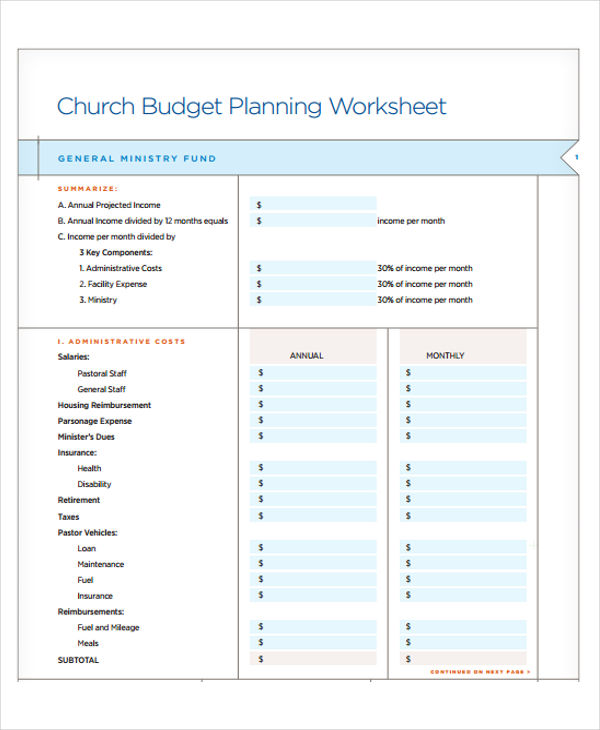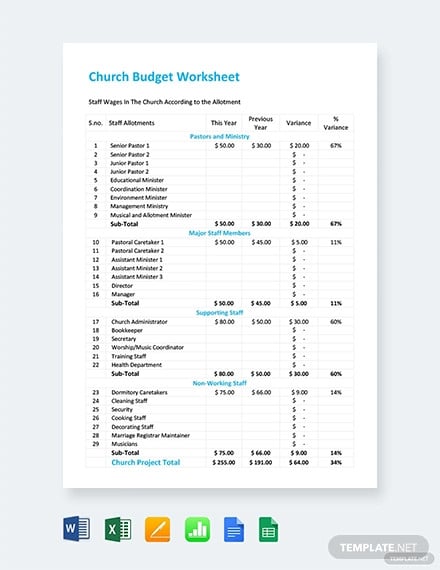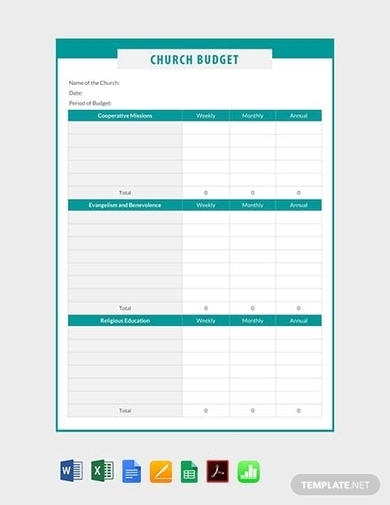

Rather, build your expense line items from the ground up. Too many parishes fail to budget for basic capital needs - and this is key, especially in tough times.Īvoid expenditure budgeting that simply takes the results of the prior year (or years) and applies some percentage for growth or contraction. But remember to incorporate baseline maintenance and repair into your operating budget (even if you intend to capitalize these costs on your books). Unless you are planning major capital improvements, you will not need to develop a separate capital budget projections. Identify (ahead of time) expenses that can be reduced or eliminated, as needed, if income falls short of budget through the first quarter of the year. Anticipate a few scenarios, and be honest about your expectations: the worst case, the most likely case, and the best case. Make clear who has what responsibilities, and set realistic milestone dates for internal progress review meetings.Ĭreate a baseline budget that captures your best sense of what is attainable for the current environment.

Begin the budgeting process four to five months before the start of the new budget year. By sharing these with the congregation, you will enhance transparency about the decision-making process and minimize some of the personality dynamics that can naturally occur when people are passionate about their programs and ministries. The rector and the vestry should create a one-page summary of the key budget premises and priorities, for this will serve as a valuable guide in many of your budgeting decisions. In either case, the process must be sufficiently inclusive - involving as many constituents as is practical - so that there is true ownership of the final budget. Larger churches with greater re- sources will be able to develop a more decen- tralized process, one where program staff plays a greater role in budget development and priorities. Smaller congregations with limited resources to call upon (e.g., no full-time staff) will need to develop a more “top down” process, one led by the rector or vestry treasurer who will keep the process on track. Start by constructing a thoughtful, practical budgeting process. Remember to incorporate your anticipated capital requirements (monitor & repair). Set a time line for creating your budget with clear milestones īuild flexibility into your budget assumptions to account for the uncertainties of the current environment Set up a formal budgeting process that makes sense for your congregation Įstablish written budget premises and priorities

These two disciplines establish a foundation for creating an annual budget.

Effective budgeting is not the result of the stressful days and nights of budget preparation, or the reams of financial spreadsheets produced, or even the many hard choices required to finalize a budget.Ĭreating a sound budget is the result of two ongoing disciplines: clear visioning, discernment and articulation of your congregation’s mission and ministry and routine, year-round internal monitoring of financial results and regular reporting within the vestry and to your congregation on its financial status.


 0 kommentar(er)
0 kommentar(er)
